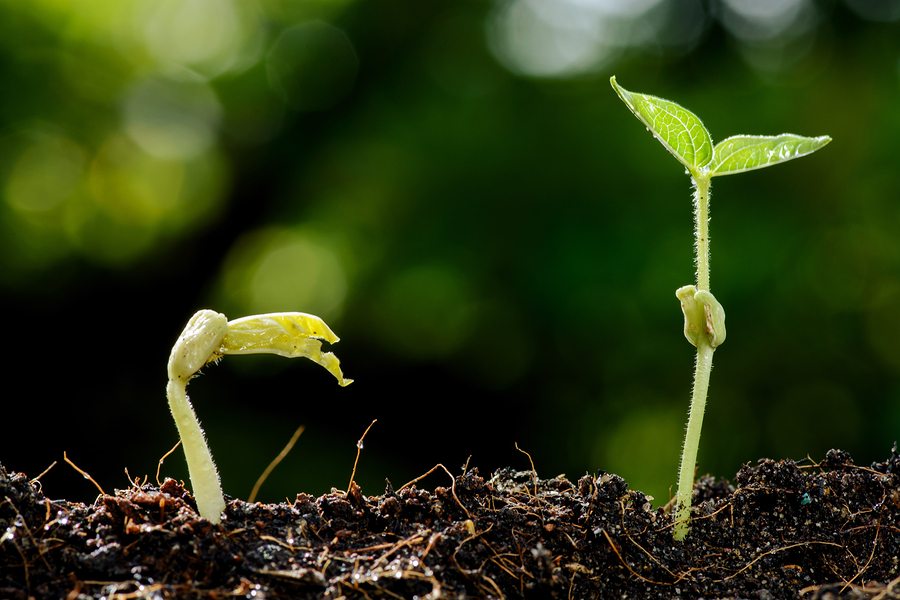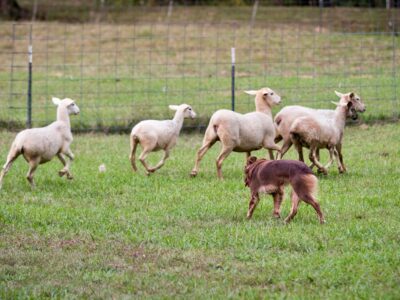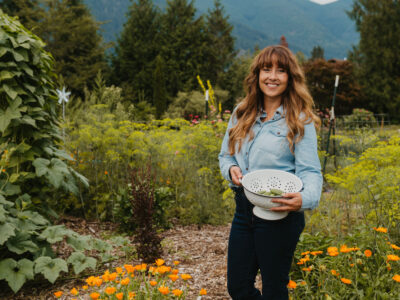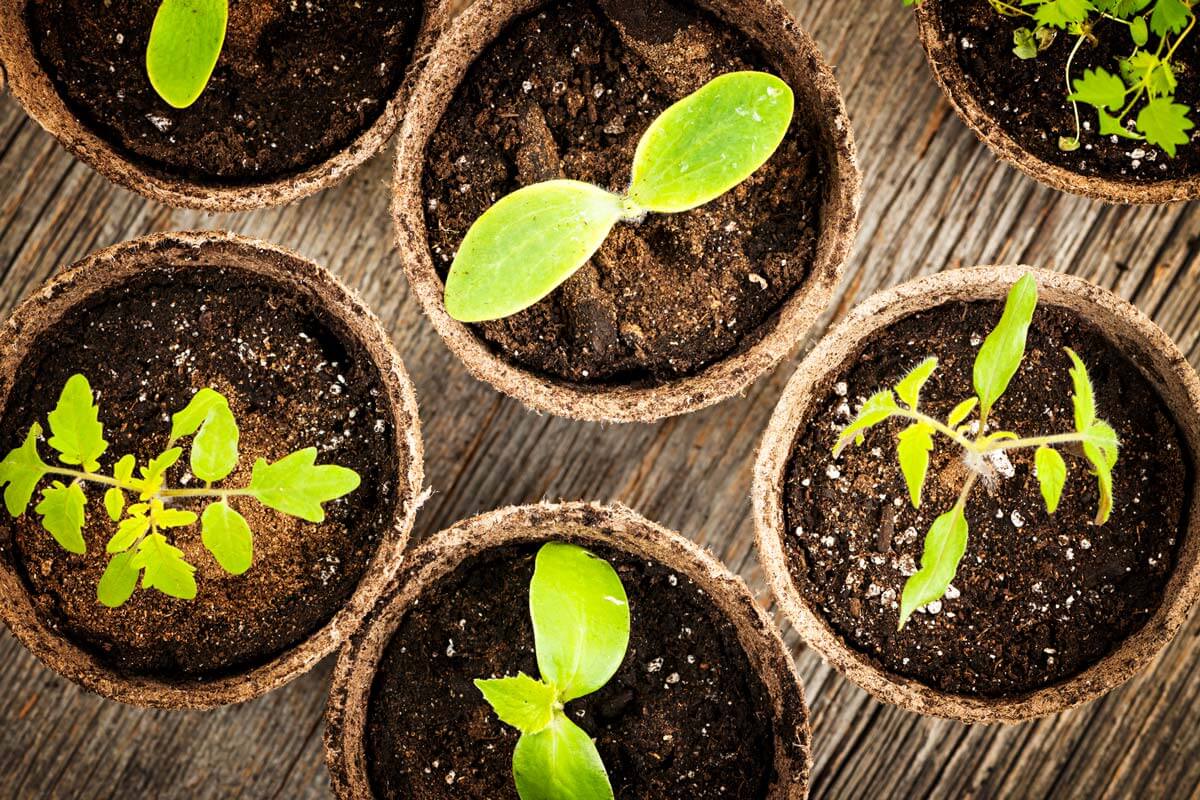I’m so excited to be sharing with you today in our 200th podcast episode about why soil health is important and ways to you improve your soil along with things you need to know about your soil to them improve it.
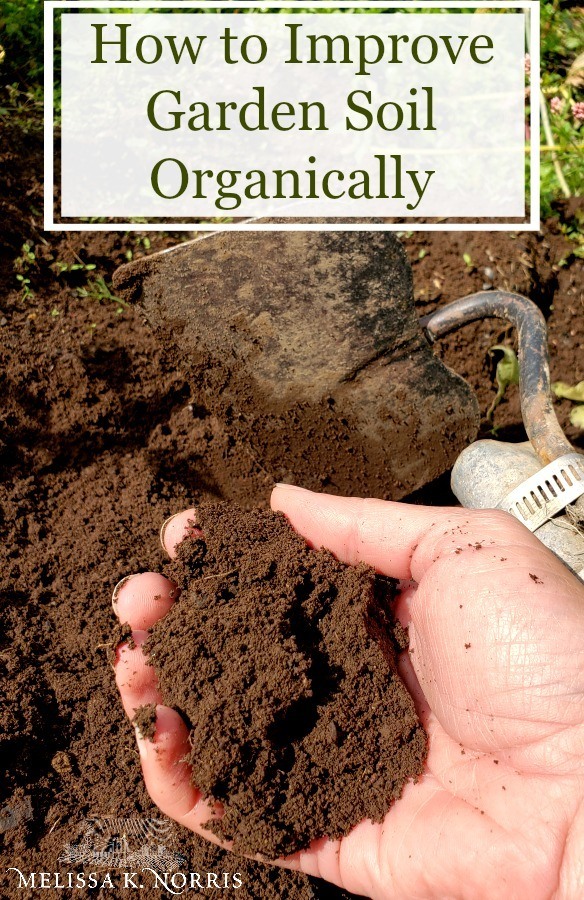
Listen in below to the full podcast, Episode #200 How to Improve the Health of Your Garden Soil, of the Pioneering Today Podcast, where we don’t just inspire you, but give you the clear steps to create the homegrown garden, pantry, kitchen and life you want for your family and homestead.
Why is Soil Health Important
The soil is the most important factor for having a successful garden. You can have all of the other elements, right temperature, right time of year, and correct growing space, but if you have poor soil health, it really doesn’t matter if you have all the other factors. It’s going to impact the plant’s ability to produce a good large harvest or even produce a harvest at all. If you have poor soil health your garden will suffer and you won’t get a good crop and you’ll be dealing with a lot more issues. So soil health is your base for every garden for creating a really good, healthy, robust garden. By continuing to improve your soil you’ll increase your harvest every year.
Now, in next week’s episode (I know I’m jumping a little bit), we’re taking a little bit deeper depth into what organic actually means when it comes to certification and using organic methods. Soil health is part of that, which is why I’m bringing it up. Building up and creating really healthy soil, obviously using organic and natural practices, is a key to organic gardening.
How Does pH Factor In?
Soil has major macro and micro nutrient levels. I know it sounds scientific but stay with me a minute. The things that we really look at when it comes to our soil, and right not I’m talking specifics for an annual vegetable garden, is the pH level. It’s not a nutrient but it’s important because it helps the plants absorb the nutrients. The optimal pH range is 6.0 to 7.0 for most of your regular vegetable garden plants. So most of your plants, if you can keep the pH level between 6.0 to 7.0, they’re going to do pretty good across the board.
You can get really granular and look at what level different crops require. For example, beets do better in a bit more alkaline soil. Alkaline soil is a higher number; closer to 7.0 is going to be more alkaline. The lower on the pH scale, the more acidic it is. In my vegetable garden, we check the pH level. Sometimes it’s closer to 6 but occasionally it’s been at 7.2 which was a little bit too alkaline so we brought it back down to 6. Both years we were able to grow beets just fine.
Nitrogen
Up next is nitrogen. Nitrogen is important because that’s what really helps your plants grow and not just growth, but also includes the chlorophyll and photosynthesis. As most of us know, photosynthesis is the leaves ability to take sunlight and convert that into food for itself from carbon dioxide and water. The plant uses chlorophyll to create oxygen as a byproduct, which is great for us. Having enough nitrogen helps with growth although some plants require more than others.
Is it possible to have too much nitrogen? Yes, some crops, such as root crops and sometimes tomatoes, if they too much nitrogen then you’ll get a lot of lush green growth, but you’re not going to get very much actual fruit. If your tomatoes are vining out all over the place, not getting many flowers, or flowers that aren’t producing fruit (although that could also be a pollination issue) that can be a sign that your nitrogen levels are too high.
This is where crop rotation comes in to make sure we’re maintaining good nitrogen levels for specific crops and planting them year after year in a certain order. Get my crop rotation video package as a free BONUS when you pre-order The Family Garden Plan: Raise a Year’s Worth of Healthy and Sustainable Food. So we know that nitrogen is imperative but there are many other nutrients that are necessary too.
Major Micro and Macro Nutrients
Up next we have phosphorus, potassium, calcium, magnesium, boron, sulfur, organic matter, zinc, manganese, copper, and iron. Just like in Goldilocks and the Three Bears, you want these levels to be just right. You don’t want them too low because they that can be detrimental to the plants but if they’re too high it can also impact the plants. This is why I really encourage doing a soil test, you can find more information about that in Podcast Episode #135, How to Test Soil pH, and also in my new book The Family Garden Plan. One of the pre-order bonuses (ya gotta check them out) is a detailed soil amendment guide, here’s more info. The nutrients I’ve listed are are your main major macro and micro nutrients, that if the levels are right in your soil then pretty much everything that you plant is going to have the base that it needs for you to grow really good healthy crops.
Organic Matter
Not only do you need to have these macro and micro nutrients, but we need to talk about organic matter. First, let’s review different soil types.
Sandy Soil
You don’t want sandy soil because it can’t hold water or any liquid organic fish fertilizer or compost tea or something like that. Because the water or any liquid fertilizers don’t stay in the water very long the roots aren’t able to absorb them. Then the plants are going to dry out really fast. Water is also the mechanism that a lot of the roots pull the different micro and macro nutrients from the soil, especially calcium. This can be seen especially when growing tomatoes and having blossom end rot. While that’s an indication of a calcium deficiency, it’s also an indicator of a watering problem. This is where soil tests come in handy. If you have enough calcium and you’re experience blossom end rot, it’s not your lack of calcium in the soil that is the problem; it’s a water issue.
Clay Soil
Conversely, clay soil has the opposite problem. It holds onto water really well. This can cause root rot causing the plant to die. Roots of annual vegetables also are not strong enough to force their way through clay soil. Plus, if you walk on wet clay soil you’re compacting it making it even more difficult for plants to grow in. Another issue that many may not know, it’s slower to warm up in the spring.
Having soil that has good organic matter is very helpful for the soil and the plants. The soil will hold onto water and nutrients better while also not drowning plants, at the same time plant roots are able to penetrate for optimum growth. If you’re not blessed with really great soil naturally, I want you to know that you can definitely build up the organic matter in your soil.
How Do You Increase Organic Matter?
There are multiple ways that you can increase the organic matter in your soil, but probably the most common and one of the easiest is adding compost. Many people, including me, have a compost pile and add compost every year to the garden. I also add it to my permanent container plants. I call them my permanent container plants because I don’t remove the soil out of them every year because I have perennials growing in them. So I add compost every single year to that container as well as to my vegetable and perennial (asparagus, rhubarb, etc.) gardens.
Obviously compost is organic matter that’s been composted down so this is going to help your soil. You can do a big old compost pile if you have a large area but if you don’t have the space there are commercial composters where you can purchase a truck load or by the yard, of compost. I have not done that but I do know that it is an option.
Another option to add organic matter is to get manure from a local farm. This is beneficial in that it’s also a great source of adding nitrogen to your soil. Farmers will use manure from whatever livestock they have and will make compost from it to sell. Once you have manure (you can request it from the farmer as manure instead of composted manure) mix it with browns and create a larger compost pile.
Nurseries and garden stores often have large bags of compost for purchase. You can get several of them depending on how many you need.
If you’re purchasing compost by the yard or dump truck load you may want to ask them where there getting the stuff because it may not be organic. If it’s bagged compost and is labeled as certified organic then you don’t have to worry about it. But if it doesn’t say, then I’d just ask.
If you have local saw mills, you can look at getting some mulch, sawdust and bark from them. Oftentimes, even though it’s not certified organic, it’s stuff that’s not been treated with anything or it’s been grown with organic practices. Composting is one of the things my new book The Family Garden Plan covers in depth, where I break it down for the backyard gardener.
Cover Crops & Chop and Drop
Cover crops are another means of adding organic matter to your soil. At the end of the growing season, another easy way to do this is to take crops that you’ve been growing and chop them down and put them on top of the soil. Then take a hoe an roughly chop them up. You can do a surface till if you’d like instead. The smaller the pieces the faster they can be consumed by the micro organisms that break it down.
Sometimes those organisms are worms. Seeing worms in your soil is a sign of really good soil. And they add worm castings to the soil. The worm poop is a great addition.
Now, there are other ways you can add organic matter in and improve your soil. We will talk about those in next week’s episode.
I really want you to have really good, healthy organic soil so that you have really good healthy plants which helps prevent or fight off many diseases and pests that can befall our vegetables or fruits. If it does get hit with a disease or pests it’s able to bounce back really quickly so that you don’t notice as much devastation or crop reduction. And it just makes your life so much easier when it comes to the garden.
That’s why it’s my goal for you guys and why we’re going to be spending more time on this topic.
